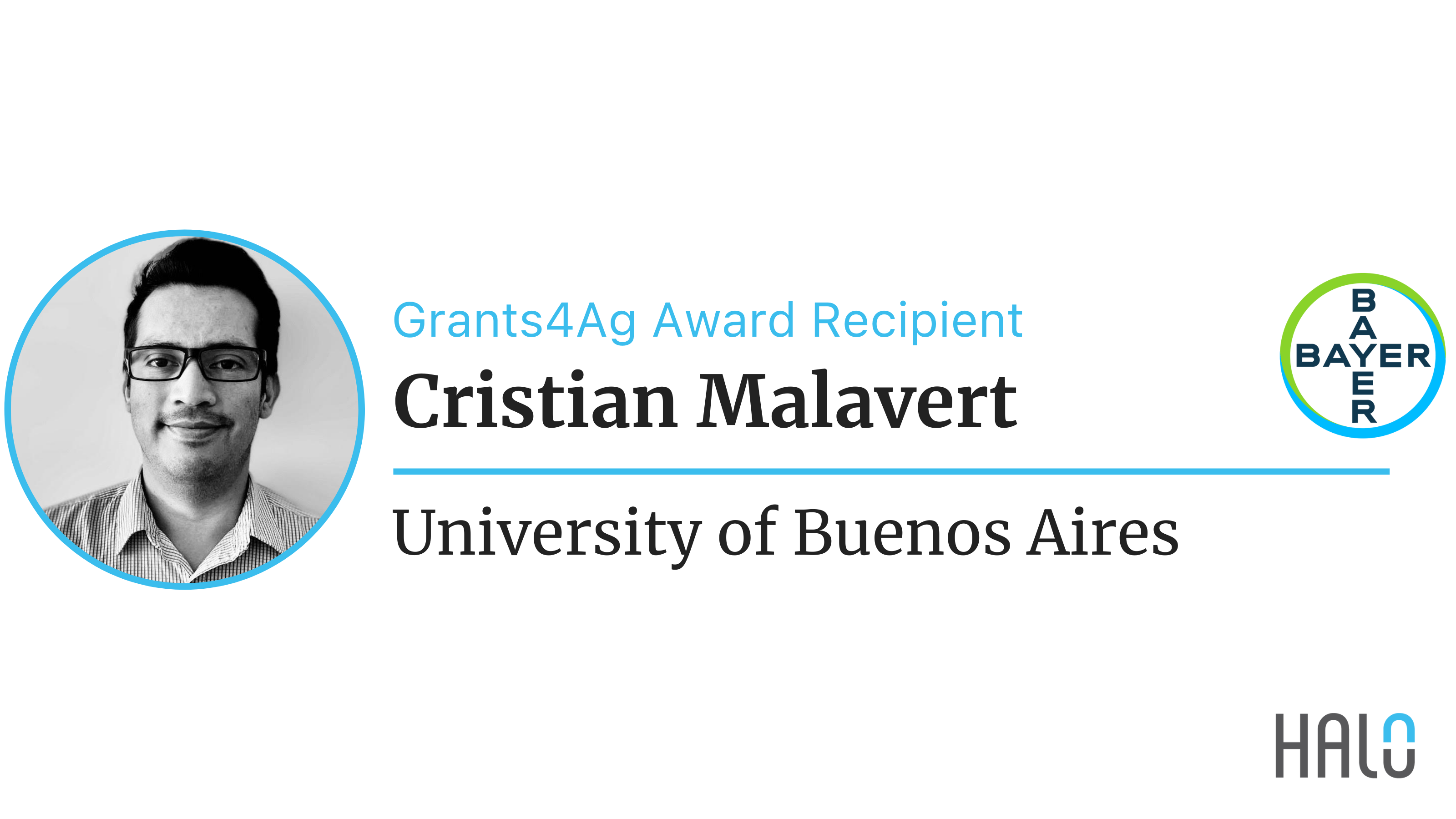Weeds cause tremendous loss to crop yields around the globe. To combat them more sustainably, Prof. Cristian Malavert is working to develop predictive models on weed emergence to help farmers make more informed decisions about management practices. View Halo Profile >>
Tell us about your research.
My research is based on the development of predictive models that support farmers and agronomists in making decisions about weed management control practices in extensive agriculture. For this, we use population-based models as a tool to predict weed emergence as a function of environmental signals like temperature, water availability, light, and alternating temperatures under field conditions. The forecasting of temporal patterns of emergence under different climatic scenarios are relevant to understand how weed populations will respond to future climate change.
We use population-based models as a tool to predict weed emergence as a function of environmental signals like temperature, water availability, light, and alternating temperatures under field conditions.
Can you explain that to a non-scientist?
The development of models to predict weed emergence in the field is a useful tool for farmers and agronomists. With these models it is possible to know the moment at which weeds can appear in the field and, based on this information, a strategy to be applied can be designed. For example, the tillage system to be used (i.e., conventional tillage, minimum tillage and no-tillage), chemical or mechanical control, crop sowing date planning, etc.
Why did you choose this area of research?
In today’s agriculture, weed problems, like tolerance and resistance to agrochemicals, have become one of the most relevant aspects of extensive agricultural systems. I am interested in this kind of research because it is possible to develop tools for crop protection in order to contribute to increasingly sustainable agriculture for the benefit of farmers, the environment, and society.
In this way, it will be possible to have tools to define management schemes based on more efficient control practices, both agronomically through the timing of control and environmentally through reduction in the use of herbicides.
How could your Grants4Ag project someday impact #healthforall #hungerfornone?
This Grants4Ag support will allow us to contribute to food security from the point of view of agroecological production that aids to reduce the use of chemical herbicides in agricultural plots and increases crop yield potential in a more sustainable form. In this way, it will be possible to have tools to define management schemes based on more efficient control practices, both agronomically through the timing of control and environmentally through reduction in the use of herbicides.


